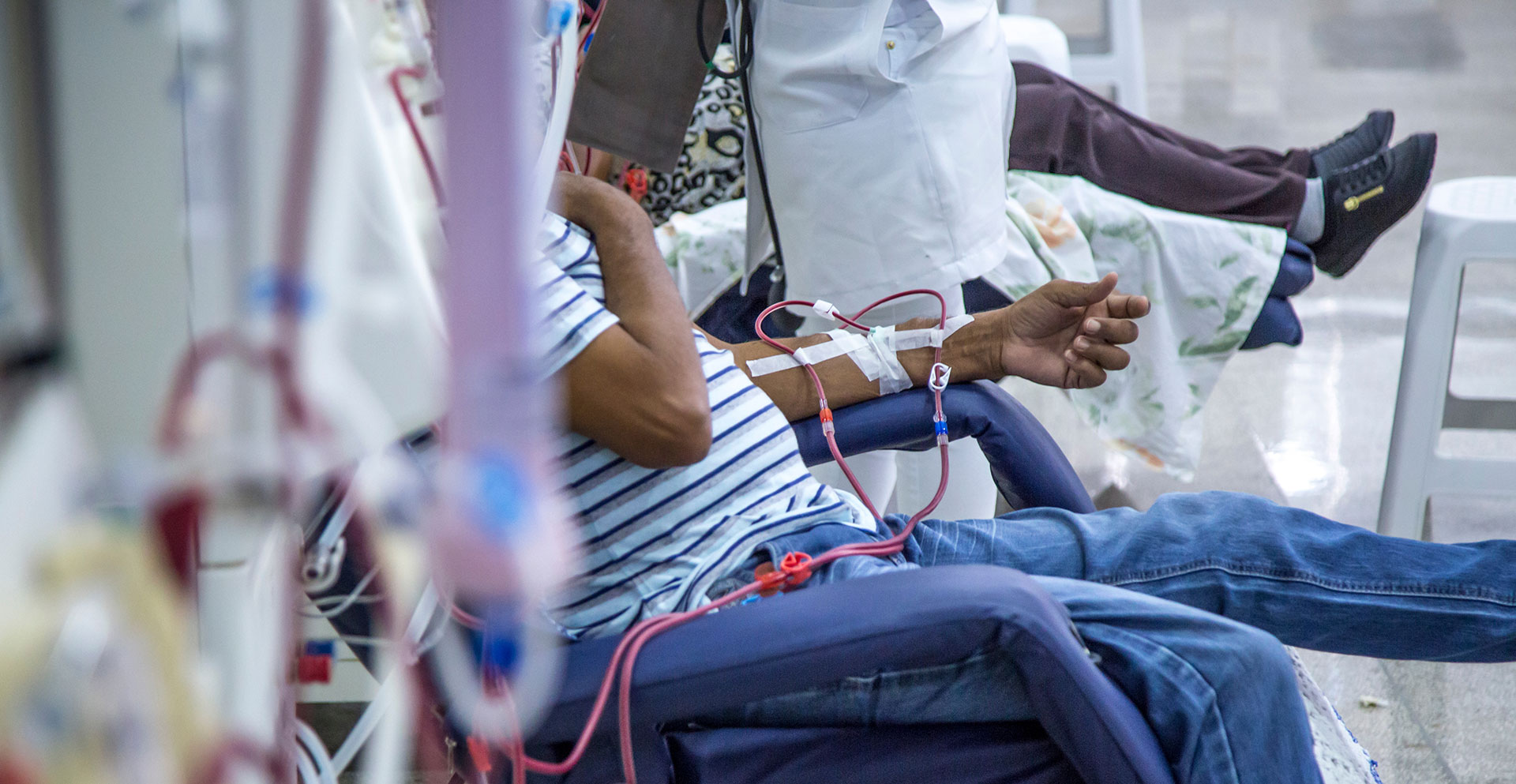
At Vascular Care Specialists, we understand that kidney failure can be a life-altering diagnosis. Hemodialysis, a life-saving treatment, relies on a reliable vascular access point to efficiently clean your blood. Our team of experienced vascular surgeons is dedicated to creating a comfortable and functional dialysis access for you, ensuring a smooth and successful treatment experience.
End-stage renal disease (ESRD) refers to the point in chronic kidney disease when the kidneys have lost most of their functional capacity and can no longer meet the body's essential needs by effectively filtering waste products from the blood.
Individuals with ESRD require dialysis or a kidney transplant to manage their condition and maintain essential bodily functions. At this juncture only renal replacement therapy, such as dialysis or a kidney transplant, can ultimately sustain life. Without these treatments, waste products and fluids will accumulate in the body, eventually leading to life-threatening complications.
Ongoing medical intervention specifically related to dialysis and dialysis access points include:
For individuals with kidney failure or chronic kidney disease, routine dialysis serves to filter the blood and remove toxins and excess fluids when their bodies can no longer perform that function effectively.
Dialysis access, which is essential for patients undergoing dialysis provides a reliable entry point for the blood to be removed, filtered, and returned to the body. As established via a surgical procedure, dialysis access creates a permanent or temporary connection between your bloodstream and an external source.
There are two main types of dialysis access:
Both an arteriovenous fistula and an arteriovenous graft provide a patent, stable, and superficial venous segment that permits the insertion of two dialysis needles sufficiently apart to allow the blood to get removed from the body and filtered blood returned.
In situations requiring immediate dialysis, a central venous catheter may be inserted until the creation of a longer-term solution.
Once placed our vascular surgeons will continue to monitor and regularly assess the dialysis assess with ultrasound imaging and other in-house testing. We’ll evaluate if the AV fistula has adequately matured and check its blood flow and other parameters. We’ll also provide detailed home care instructions on how to care for and protect your dialysis access.
It’s crucial to communicate any concerns or issues with your dialysis access to our office. Potential problems may include low blood flow through the AV fistula, blood clot formation, or signs of infection. If any of these issues arise, contact our office for further evaluation or an additional procedure to ensure the continued proper functioning of your vascular access.
Fistula maintenance and procedures to treat some fistula complications can be treated in our office-based lab.
The success and longevity of your dialysis access depend significantly on the skill and experience of the surgeon performing the procedure. Our vascular surgeons are highly trained and experienced in creating both AV fistulas and AVGs. They utilize minimally invasive techniques whenever possible to minimize discomfort and promote faster healing.
Benefits of Choosing Vascular Care Specialists for Dialysis Access
If you are facing kidney failure and require hemodialysis, or are considering preventative measures for future dialysis needs, schedule a consultation with our vascular surgeons today. We can discuss your options, answer your questions, and ensure you have a comfortable and efficient dialysis access point for successful treatment.
At Vascular Care Specialists, we believe in empowering you throughout your dialysis journey. Our compassionate and dedicated team is here to provide the highest level of expertise and support to ensure a smooth and successful hemodialysis experience. Contact us today to learn more about how we can help you achieve optimal vascular health and a better quality of life.
